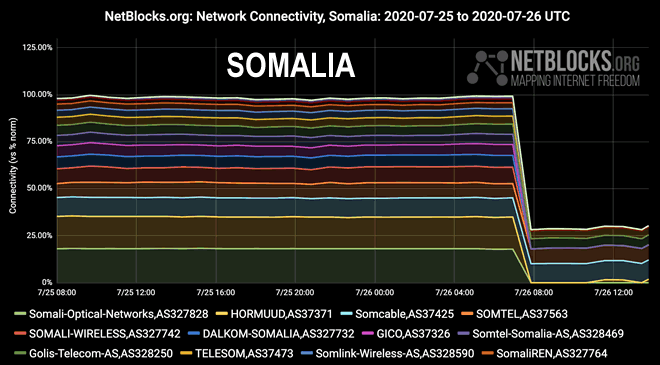
Abdi Guled | AP
Monday July 27, 2020

NAIROBI, Kenya (AP) — An internet blackout across large parts of southern and central Somalia ended Monday after what critics called an attempt by the government to control information amid fears of political fallout after the prime minister was ousted over the weekend.
Parliament on Saturday booted Hassan Ali Khaire, the longest-serving prime minister of post-war Somalia, in a surprise no-confidence vote, drawing criticism from the international community including the United States, which expressed concerns over “irregularities” in the process.
Visibly upset, Khaire hurried back to the capital, Mogadishu, where he told reporters he was stepping down, despite knowing the “flawed process” through which he was removed, to protect national unity.
His ouster could delay the country’s election set for early next year. Khaire had called any delay and possible extension of the president’s term “unconstitutional” and warned it could lead to a political and security crisis.
Parliament’s move came just days after the president and regional governments, which have had a tense relationship, had agreed to hold a timely vote. Somalia had aimed to hold its first one-person-one-vote in 50 years, but that prospect is fading.
Under pressure to explain the internet outage that began Sunday, Somalia’s key internet service provider, Hormuud Telecom, suggested it happened after windy conditions whipped up Indian Ocean waves that affected a submarine cable.
Few in Somalia were convinced, and global internet monitoring group NetBlocks said there was no indication of such a cable outage impacting Somalia. “Occurrences of cable cuts that affect a single country’s internet connectivity for an extended period of time are exceptionally rare,” it said.
Somalia’s Minister of Posts, Telecommunications and Technology, Abdi Anshur Hassan, denied reports that the government “intentionally” cut the internet connection and echoed Hormuud’s statement.